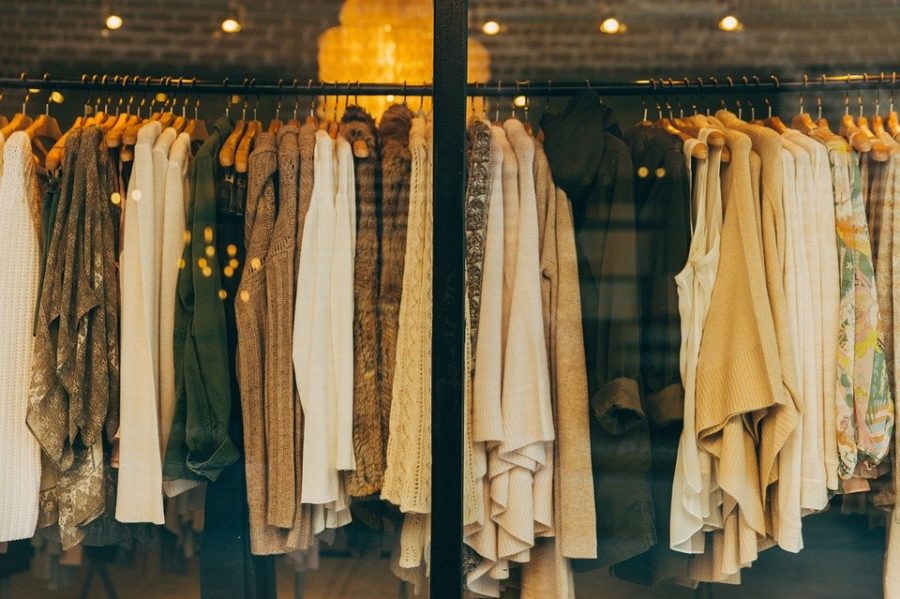Breaking the Trend: How Fast Fashion Hurts
Fast fashion can be very harmful to our fragile environment.
November 18, 2019
Megan Craft
Copy Editor
With style trends constantly evolving, so must the market place for cheap, mass-produced clothing. “Fast fashion” is not just a by-product of short term fashion trends, but is now a societal norm that large retailers are being held to. Fast-fashion can be defined as inexpensive clothing produced rapidly by mass-market retailers in response to the latest trends.
Going back a decade, clothing was made with meticulous intent, and designs were carefully crafted and the overall process of making a sturdy garment took lots of time, effort and money. These clothes were made to last for the better part of a lifetime.
Not only does fast fashion diminish the individuality of personal style, but it is also very harmful to the environment. According to Daily Mail, synthetic cotton blends, which is what most fast fashion garments are made of, can involve pesticides and consume lake sized portions of freshwater. With every load of laundry, thousands of plastic fibers go down the drain. The textile industry is contributing to climate change, becoming more destructive than international flights and shipping combined.
According to the Bio-Med Central, roughly 85% of the clothing Americans consume–which is nearly 3.8 billion pounds annually–is shipped to landfills as waste. This adds up to nearly 80 pounds per American per year.
“More than 60 percent of fabric fibers are now synthetics, derived from fossil fuels, so if and when our clothing ends up in a landfill (about 85 percent of textile waste in the United States goes to landfills or is incinerated), it will not decay,” New York Times journalist Tatiana Schlossberg said.
Like any other market place, cheap product comes from even cheaper labor. According to ReWire, Turkmenistan and Uzbekistan, two of the world’s biggest cotton-producing countries, use forced labor in their cotton fields. In China, textile factories are used as prison camps. Girls in India are sold into three years of bonded labor by their families to earn their marriage dowry.
“It’s really hard to stop buying from fast-fashion retailers entirely, but doing the little things–like buying secondhand or swapping clothes with friends–is something everyone should do as often as they can,” senior Molly Martini said.
While contributing to fast fashion exploits workers and is a large environmental ‘no-no’, shopping ethically isn’t always a choice for some people. Buying from ethical, locally sourced clothing shops can be expensive, and those who are able to purchase from such retailers are privileged with that option.
































































